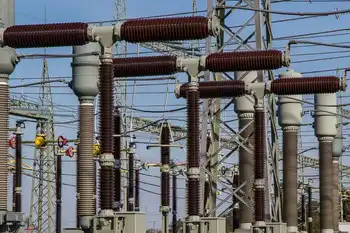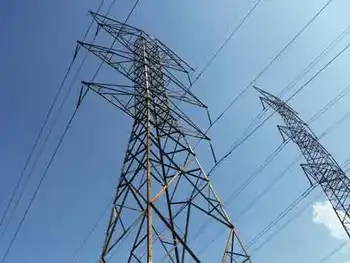Duke Energy Carolinas asks for first increase since ‘91
By PR Newswire
CSA Z462 Arc Flash Training - Electrical Safety Essentials
Our customized live online or in‑person group training can be delivered to your staff at your location.

- Live Online
- 6 hours Instructor-led
- Group Training Available
The increase would be reduced to 7.2 percent thanks to the company's plan to refund money collected from customers for past energy efficiency and demand side management (DSM) programs. The money would be returned through monthly bills over approximately five years.
The company is also proposing to reduce fuel charges in bills for 12 months. The recession is leading to lower power use, so less fuel is being burned than originally forecast.
In addition, the company is asking for a charge to pay for its new energy efficiency efforts, which were recently approved by the PSC.
"For 18 years, we've held the line on general rates in South Carolina," said Brett Carter, president of Duke Energy Carolinas. "Unfortunately, our current rates are no longer sufficient to build a cleaner, more reliable system, meet our expenses, provide a fair return to investors and maintain a strong financial position."
If all of the company's requests are approved, the average South Carolina monthly residential bill — for 1,000 kilowatt-hours of electricity — would increase to about $97.
If approved, reductions to the fuel portion of customer bills would occur October 1 through September 30, 2010. Other changes would be implemented no earlier than January 1, 2010.
The proposed increases to general rates vary by customer group. In addition to covering rising costs, the rate case is an opportunity to address rate parity among customers. Rates are designed to align - as closely as possible - the price a customer group pays with the cost to serve them. But as the customer mix and other factors change over time, some customer groups end up paying more or less than their cost of service. The new rates are designed to better align costs and prices.
Between 1991 and the end of September 2009, Duke Energy Carolinas will have invested approximately $14 billion in new power plants, power lines and equipment across the system and in pollution control equipment on some of its largest plants.
Approval of the new general rates would increase annual revenues from Duke Energy's South Carolina retail operations by approximately $133 million before consideration of the DSM balance refund.
Although the company adjusts fuel costs on an annual basis, the last general rate increase in South Carolina was in 1991. In fact, rates were actually lowered in recent years. In 2006, customers received a one-time annual rate reduction of $40 million in shared savings achieved through Duke Energy's merger with Cinergy.
Duke Energy Carolinas' South Carolina rates are currently 37 percent below the national average and about 31 percent below other utilities in the Southeast. Even with the requested increase, those rates will remain well below those averages.
Duke Energy is committed to meeting its customers' electricity needs as efficiently as possible. In 2009, the company set a cost reduction target of $100 million across the organization and froze wages for most salaried personnel. During these challenging economic times, the company has also pared back its capital spending.
"The operational efficiencies we've achieved and our strict cost controls have not been enough to offset the need for an increase, given our significant capital investment in pollution control equipment, new generation, and transmission and distribution," said Carter.
On June 1, Duke Energy launched a number of energy efficiency programs to help customers in the Carolinas save power and money. In South Carolina, the average residential customer can save about $5 a month by participating in energy conservation programs.
From programs to help qualified customers improve energy efficiency in their homes, to cash incentives for purchasing energy-efficient equipment, these programs are first steps in helping residents and businesses lower their energy bills. Other programs will enable customers to save even more by voluntarily curtailing their energy use during periods of high demand.











